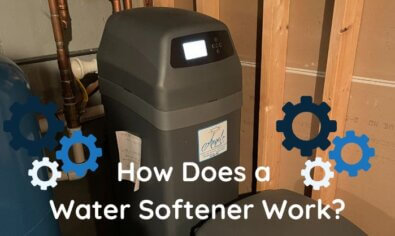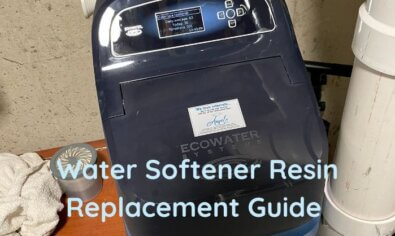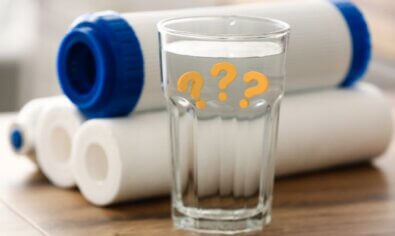7 Hard Water Hair and Scalp Problems and Your Best Solution
This blog contains these key takeaways:
• Washing your hair in hard water can dry out the scalp and make hair brittle, dull, tangly and more.
• A water softener is the best solution for these problems because it eliminates the minerals in the water that cause them.
• You can find the right softener for your situation by testing your water and looking for a trustworthy brand.
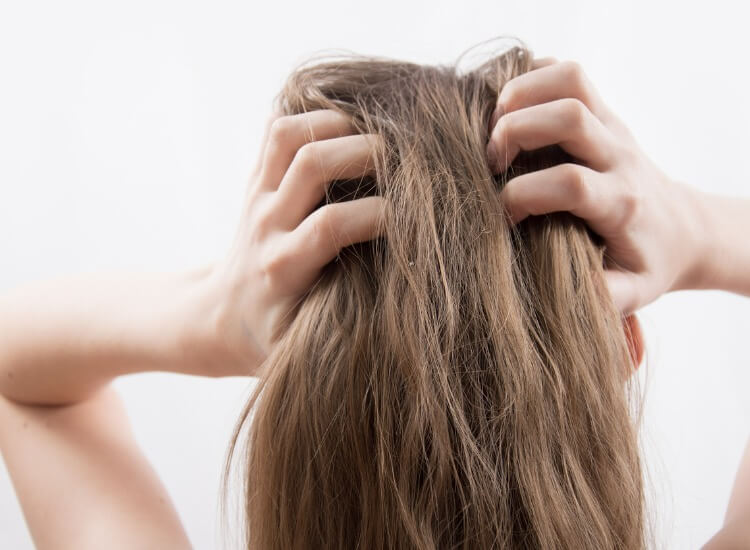
Taking a shower should help you maintain a healthy head of hair.
It should.
Unfortunately, when you wash your hair in hard water, it can damage your hair and scalp, leaving you worse off than before you washed it.
How much damage can it do? In this post, we’ll explain how hard water can cause seven horrible problems for your hair and scalp.
But before you get too glum, we’ll also show you how a water softener can help with all those problems and more!
If you already know you’re interested in a water softener, please visit the page below to learn more about our services. Otherwise, keep reading to learn how a softener can help your hair.
How Does Water Hardness Affect Your Hair?
A lot happens when you wash your hair in hard water, and not much of it is good. This is because the water contains calcium and magnesium ions that disrupt the hair washing process. As we will see, these ions help produce a head of hair with all the following properties:
- An incessant dry itch
- Brittle follicles that break easily
- Thinning and falling out
- Difficult to untangle
- Uncontrollable frizz
- Dull and lifeless
- Hard to keep colorful
Hard water can’t cause that many problems, can it? It may seem shocking that your water could do so much damage to your hair and scalp. But it’s true, and we’ll prove it to you.
Join us as we take a closer look at how hard water produces each of these effects.
1. Dry, Itchy Scalp
The worst part of washing your hair with hard water is the effect it can have on your scalp. After all, you don’t have to look at your hair all day, but you do have to feel that itch.
Perhaps you’ve been living with a dry, itchy scalp for a while and assumed your skin was at fault. You may have figured you’ve just been cursed with excessive dandruff and there’s nothing you can do about it.
But that’s not necessarily the case.
We’re not saying a skin condition isn’t to blame for your flaky, itchy scalp. It could very well be, and we’d recommend consulting a dermatologist if you’re concerned.
What we are saying is hard water also plays a role in drying out your scalp. In fact, its effects often only make skin conditions worse!
So, what does hard water do to your scalp that’s so unforgivable? To put it simply, it suffocates it.
When you mix shampoo with hard water and scrub it into your scalp, something odd happens. Instead of taking the dirt and rinsing it away as it should, the shampoo grabs the dirt and sticks to the scalp. The shampoo behaves this way because of a chemical reaction that occurs when it interacts with the calcium and magnesium ions in the hard water.
The soap and the ions combine to form a curd, which is commonly known as soap scum. Soap scum refuses to dissolve in water as it should. Instead, it sits on the skin and prevents it from getting the natural oils it needs.
The scalp dries out as a result, and that dryness is what leads to the dreaded itch.

Follow Drew’s mission on YouTube
2. Brittle and Breaking Follicles
Not only does your scalp need natural moisture to stay healthy, but so does your hair. Normally, each of your hair follicles receives moisture from oil glands in your scalp. However, the hard water minerals mess up this process as well.
All that calcium and magnesium in the water ends up all over your hair. When the water dries on your hair after a shower, what’s left behind is a film made of those minerals on each of the follicles.
This mineral buildup blocks the oil glands from transporting the much-needed moisture to each strand. Because of this, what was once soft and flexible hair turns into something more like straw. The suffocated strands become difficult to control and break easily.
3. Hair Thinning and Falling Out
While brittle hair may not seem like the hugest problem to you in the short term, it can lead to hair thinning and falling out in the long run.
Your hair may begin to lose its thickness as the hard water minerals clog the pores on your scalp. These clogs make it difficult to grow new hairs, and as fewer strands grow over time, a hairdo begins to look thin.
On top of this, the longer mineral deposits prevent your hair from getting the moisture it needs, the more likely follicles are to break off at the root and fall out. So, more hair will be falling out while less grows. This is certainly not a favorable combination for a healthy head of hair.
All of this is not to say hard water can cause hair loss. The jury is still out on whether hard water and hair loss are directly linked. However, what is clear is that hard water can negatively affect your hair in a way that prevents healthy hair growth. And it’s worth combatting these effects to protect the health of your hair.
4. Knots and Tangles
Hard water can also turn your hair into a tangled mess that is difficult to brush or comb.
Each hair follicle is covered in tiny scales. These scales lie flat against the follicle in a smooth and tangle-free head of hair.
However, the minerals in hard water cause the scales to stand on end during a shower. When these scales stand up, they often latch onto the scales on neighboring hairs, causing the hairs to get tangled together.
So, hard water could be to blame for those painful post-shower combs.
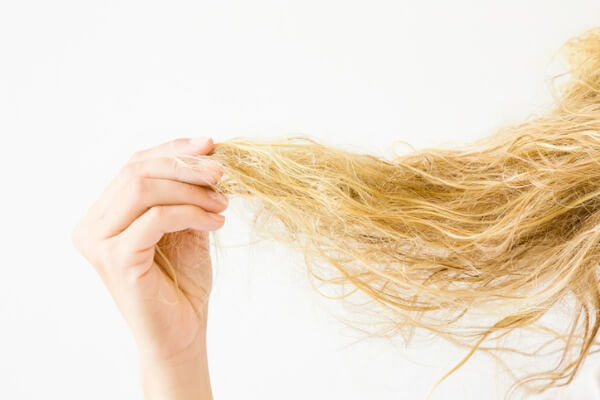
Hard water leaves hair full of knots and frizzy.
NEW! Stop Wasting Money!
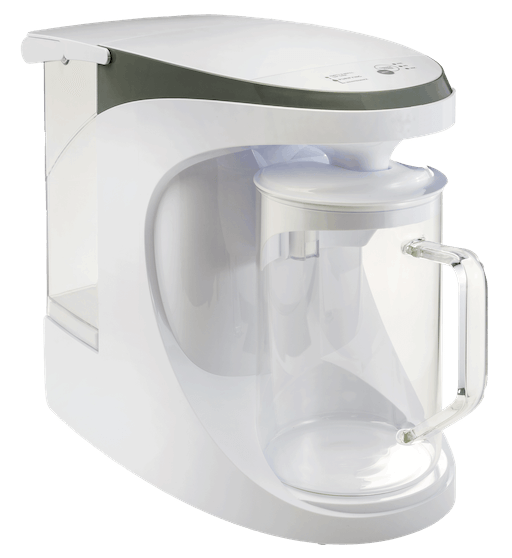
Are you spending money every month on Bottled Water for your home or office? That adds up quickly and with inflation, it’s only going to cost more tomorrow.
With the NEW purAsure Counter top Reverse Osmosis System you never have to pay for another case of plastic bottles! Get yours before the price goes up and Enjoy cleaner, healthier water on demand!
5. Excessive Frizziness
Frizziness usually results from external factors like excess humidity. However, hard water also doesn’t help matters by abusing each hair follicle.
Hair can become frizzy when hard water makes the little scales on each follicle stand up on end. As the scales stand up, they let moisture escape the hair shaft and let in air. This air makes the follicle expand and become misshapen, which leads to a frizzy appearance.
6. Dull and Lifeless
Your hair also needs moisture to produce that attractive natural volume and sheen. But the calcium and magnesium deposits from hard water block up the glands that provide this moisture. As a result, hair loses its natural beauty and becomes dull, flat and rough.
7. Difficult to Color
Hard water can also make it difficult to maintain your hair color. Once again, the excess mineral buildup is the culprit here, blocking off the natural moisture hair needs to maintain its natural hue.
Another reason some hard water causes discoloration is because of high iron content. Iron is an oxidizer, which can cause blonde hair to turn coppery orange and black hair to turn rusty red.
The same problem occurs for people who color-treat their hair. Bathing in hard water cakes hardness minerals over the dyed follicles and causes them to fade sooner than they would normally.
For all these reasons, hard water is a pain no matter what color or style of hair you have.
Fortunately, a solution exists that can reduce these problems so that you can enjoy your showers again. We’re talking about installing a water softener.
Why is a Water Softener the Best Solution?
We know what you’re thinking: a water softener is a major investment. It will be a significant upfront cost to purchase one and get it installed in your home.
We understand your hesitancy. After all, there are also a lot of alternative hard water hair care options out there. For example, you could try to find a hard water shampoo that mitigates the hard water effects. There are plenty of these to choose from on the market.
But here’s the thing: many of these shampoos are more expensive than regular shampoo. So, you will be paying more for shampoo over time. It will also require a lot of trial and error to find one that works for you, and you may never even find one that works.
Of course, you could also try many other hard water hair treatment options aside from shampoo. You could attempt rinsing your hair with citrus and vinegar or applying a hair mask. There are also special showering techniques that could help, such as being careful to rinse toward your forehead or ending your shower with cold water.
You could try all this, but to us, it sounds like a lot of extra steps and stress to add to your hair care routine. And there’s no guarantee these steps will lead to better results!
That brings us to why a water softener is better. Put simply: A water softener gets rid of the source of the problem before it can get to your hair. It eliminates hard water for you so that you don’t have to add any extra steps to your routine!
How does it accomplish this? We’ll show you:
How a Water Softener Protects Your Hair
Water softeners take your hard water and remove the minerals from it that cause all the problems we listed above. They do this through a process called ion exchange.
How this works is the water enters the system and flows through a bunch of tiny resin beads. These beads have a negative charge, which attracts the positively charged calcium and magnesium ions out of the water.
Once all the ions are out of the water and stuck to the resin beads, the ion-free water is then sent to all the fixtures in your home, including your shower. The water is now soft, meaning it won’t suffocate your scalp and dry out your hair. Instead, it will rinse as it should to leave your hair clean and refreshed!
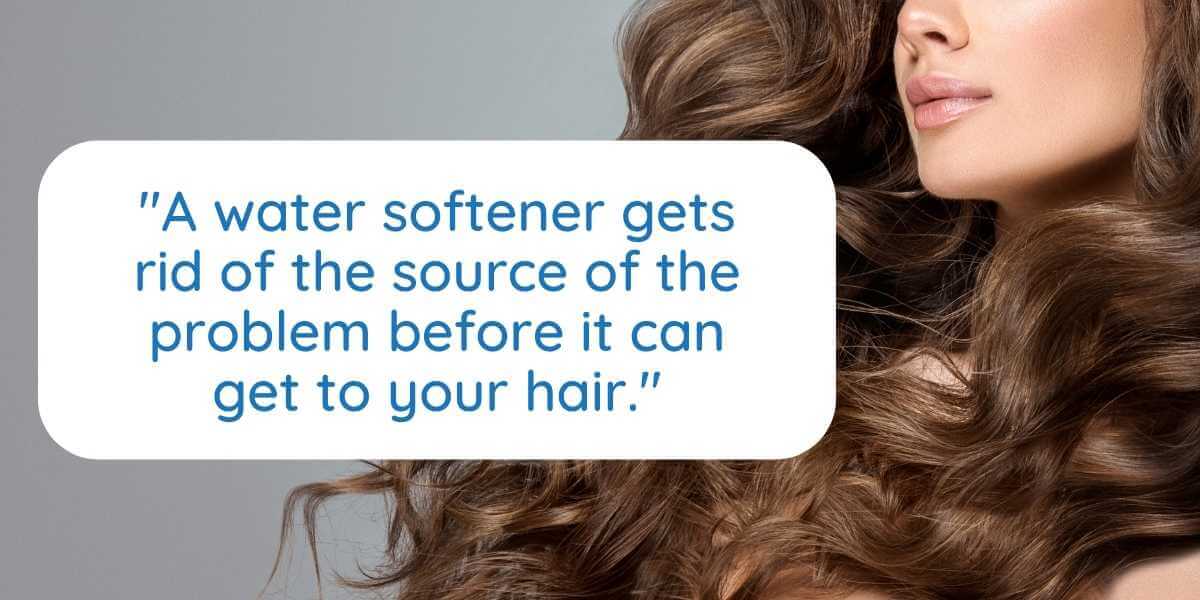
How to Find a Softener That Works for You
No matter your financial situation or the state of your water, we can help you find a water softener that works for you. The key is to know your options.
For those of you concerned about the upfront cost of a softener, the good news is there are options available for any budget.
The cheapest option is to purchase a small water softener you can install on your shower head. You can find them for as low as $30. Shower softeners can give you the soft water you need for a few months before requiring filter replacement, which is as simple as popping a new filter into the showerhead.
Of course, these softeners aren’t as effective as systems that soften water for the whole house. Even with these systems, you can find more and less expensive models. On the lower end of the price spectrum, you could get a WaterBoss, Whirlpool or GE softener at prices in the mid-hundreds. Or you could go for a higher-priced but more dependable water softener from a trusted brand like EcoWater.
What to Look for In a Water Softener
The best model to choose for your home will depend on how hard your water is and where you get your water from. You can determine the hardness of your water by getting your water tested. Once you know the hardness level, you can find a system designed to handle that level of hardness.
You should also factor in whether the water in your home is city water or well water. Homes with city water will want to look for a softener that can filter out chlorine as well as hardness minerals since city water is usually chlorine treated. On the other hand, homes with well water will want a system that can also remove iron, radium 226/228 and barium since untreated well water can contain many of these contaminants.
Ultimately, the best way to make sure your system will do what you want it to do is to make sure it’s NSF/ANSI 44 certified. This certification means the softener has gone through multiple tests to make sure it works as it should.
The Many Benefits of Softer Water
We at Angel Water have helped many customers struggling with hard water hair find relief over the years. It comes with the territory since we serve regions with some of the hardest water in the country: Northern Illinois and Southeast Florida. We’ve installed softeners for grateful customers everywhere from Arlington Heights, IL, to Boca Raton, FL.
Not only are these customers grateful because they have healthier hair after they shower, but their softeners have transformed many other areas of their home.
- Dishes that once came out of the dishwasher caked in calcium are now free of spots.
- Toilet bowls that were once covered in embarrassing hard water stains are now clean.
- Clothes come out of the washer looking brighter.
- There’s less wear and tear on their water-using appliances.
These are just a few of the many ways a water softener can make your life easier. We love installing and maintaining them because our passion is providing healthier and cleaner water for families.
Want Softer Water? Schedule an Appointment Now!
Find out how a water softener can help protect your home from hard water damage. Schedule an appointment with our water specialists today to explore the best solutions for your home.

